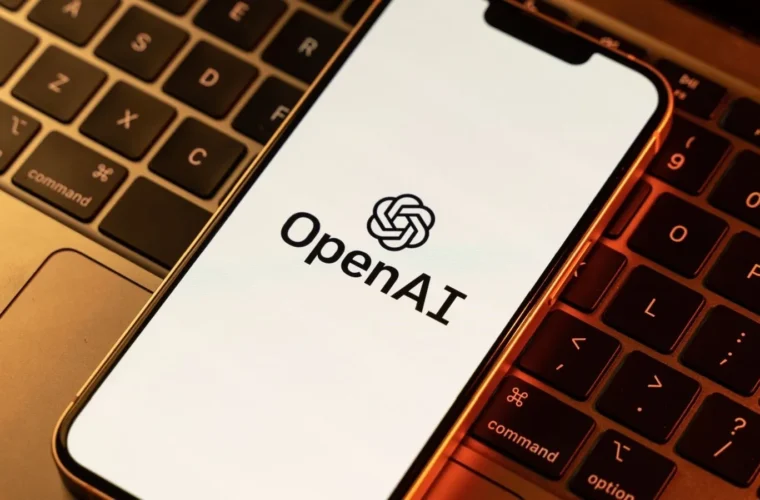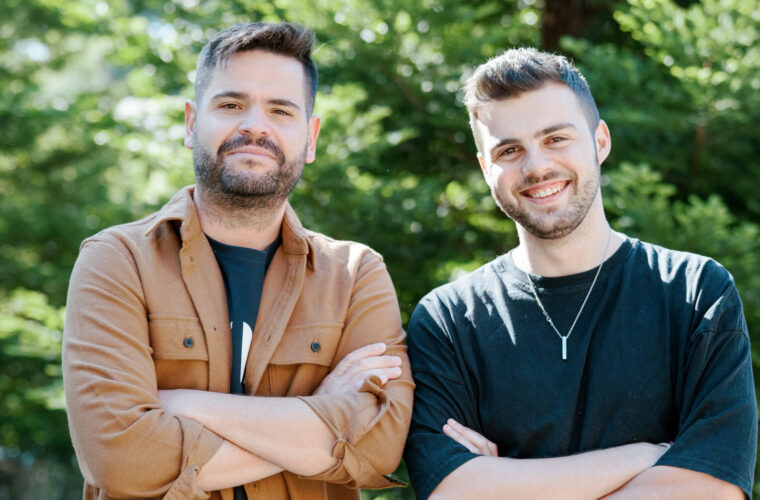Microsoft AI: Climbing back up the ladder and returning on the front foot after a knockout blow is complicated but not impossible. At least if your name is Microsoft, the giant from Redmond is churning out astounding figures after the arrival on the bridge of Satya Nadella, the inspiration behind the transformation of the company founded by Bill Gates and Paul Allen in 1975. Trained as an electronics engineer in his native India, he moved to the United States to pursue a high-level career in information technology before joining Microsoft in 1992, where he rose through the ranks from vice-president of research and development to head of the business division, to intuition about the importance of the cloud and the birth of Azure. He became CEO of the company, replacing Steve Ballmer without repeating his mistakes.
‘Mobile first, cloud first‘ was Nadella’s first mantra, and he skilfully broke down the walls separating internal departments, transforming the envy between teams that arose from competing for large chunks of the annual budget into common impulses and goals. Thanks to his approach, we have the teamwork of his 200,000-plus employees and the prioritisation of the cloud and, more recently, artificial intelligence, the two elements that have turbocharged the company, which is now competing with Apple for the title of the world’s most capitalised company at $2900 billion.
The right choice after failure
Arriving before others with technologies that are destined to change the status quo is a lesson that Microsoft has learned from its mistakes. The blow was too hard and too destabilising at the time of the iPhone and smartphones, which dethroned Nokia in a short space of time and later burned through the avalanche of money that Redmond had poured into the acquisition of the Finnish brand and the development of Windows Phone as an alternative to the iOS-Android duopoly. A misguided and belated attempt to catch up with rivals that cost nearly $10 billion (plus more than 25,000 layoffs), it went down in history as Microsoft’s worst failure.
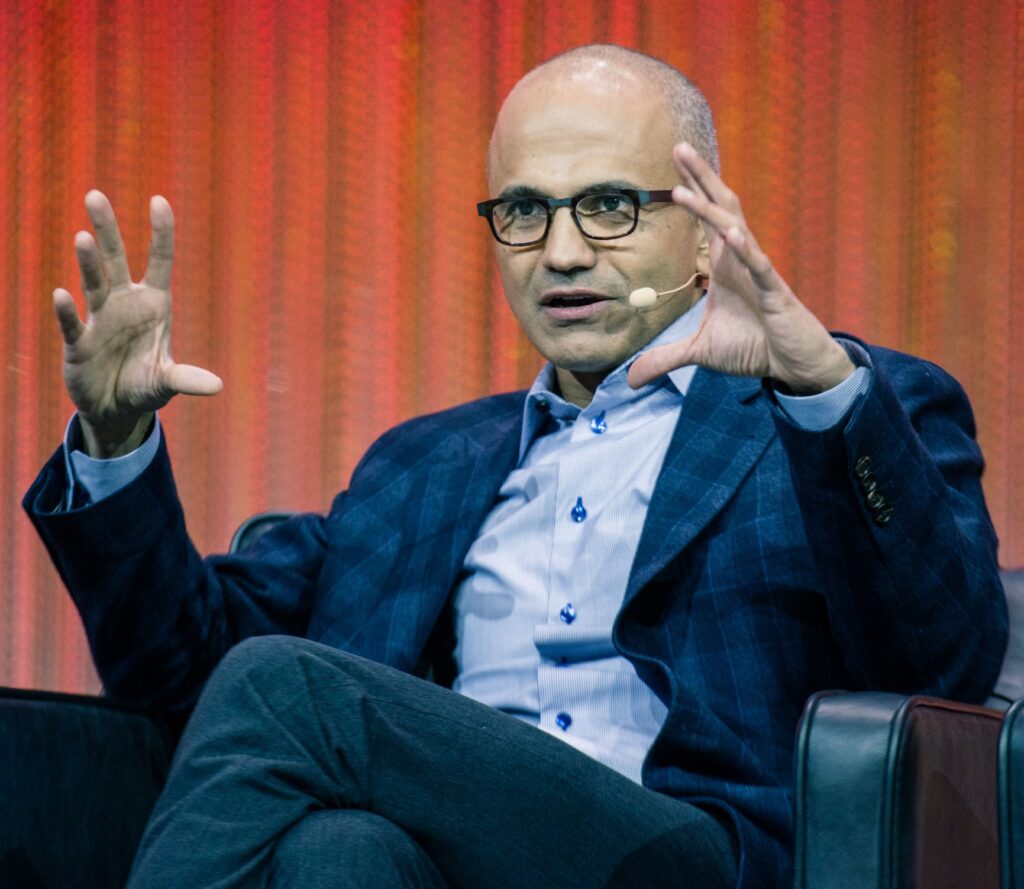

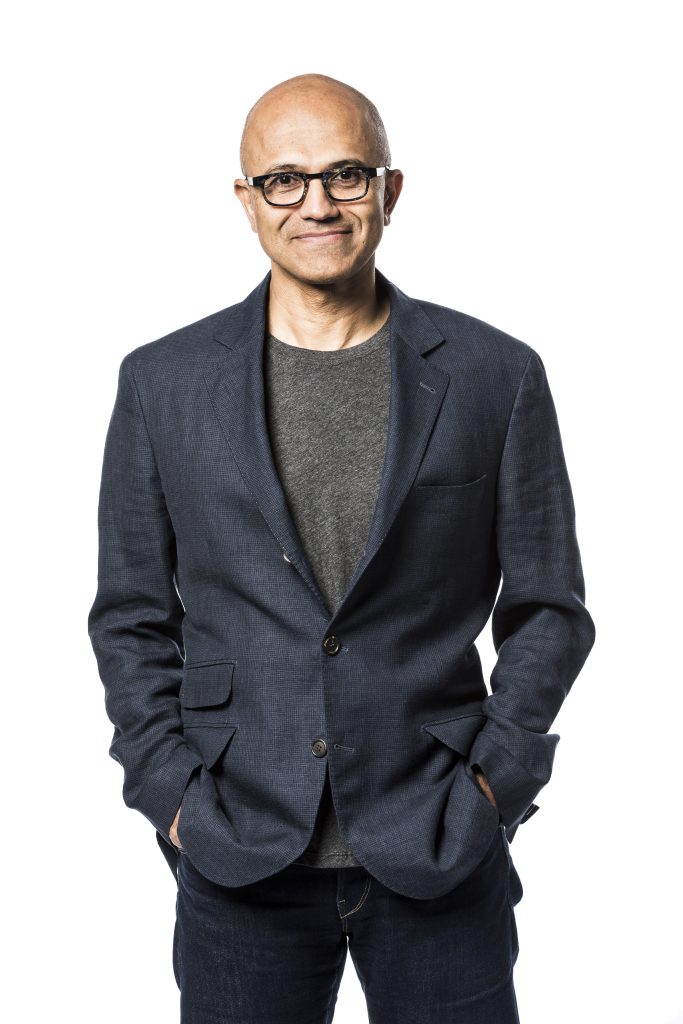
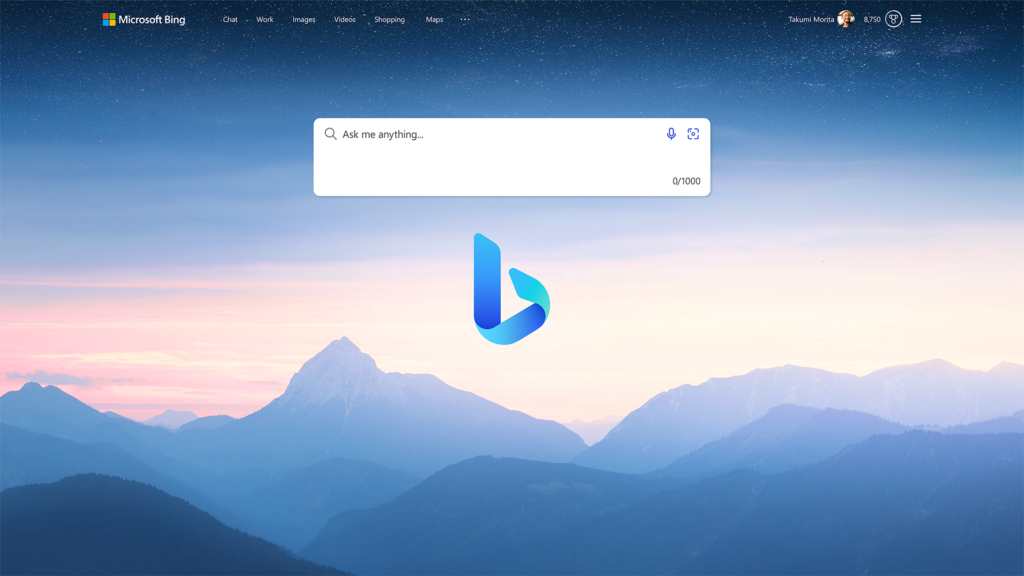
Nadella’s skill was to have a clear strategy to pursue, but above all, to change the mindset of a company that events and technological developments had overtaken. No more trying to do everything on your own, because partnerships with companies with specific expertise are the best viaticum for positive results. That’s why, as soon as it saw the opportunity, the company bet on AI by investing more than $10 billion in OpenAI. ChatGPT’s capacity, power, and speed have opened up a new world, and Microsoft immediately slipped to secure pole position in the most important race for the present and future of big tech. Without giving up the opportunity because OpenAI is an independent company that works with other groups and has to satisfy its customers.
Microsoft AI
Right or wrong? The figures speak for themselves: in the first quarter of this year, Microsoft continued to increase its revenues over the previous twelve months (+17%), with profits of $21.9 billion (+20%). These results exceeded the expectations of analysts who were convinced that investments in AI could slow down the company’s parabola. The driving force was the cloud, with Azure revenues up 31%, while the Intelligent Cloud division increased its revenues by 21% ($26.7 billion). These are figures that sum up Microsoft’s current leadership in Gen-AI, pending Google’s re-launch with Gemini.
‘We’ve moved from talking about AI to applying AI at scale,’ said CEO Satya Nadella, pointing out that the application of artificial intelligence at every level ‘is winning us new customers and helping to drive productivity in every industry’. Beyond AI, however, what is most striking is how abruptly Microsoft’s internal culture has changed, an inevitable shift to maintain leadership in an industry that is changing at an extremely rapid pace, shifting power relationships and leaving behind those who lack the ability to adapt to change. ‘We want to adopt a culture that allows us to keep up with technology, to develop new concepts and new ideas. But stay true to our identity as a platform provider that ultimately empowers the world around us’. These are the words of Satya Nadella, who has never missed a beat.


